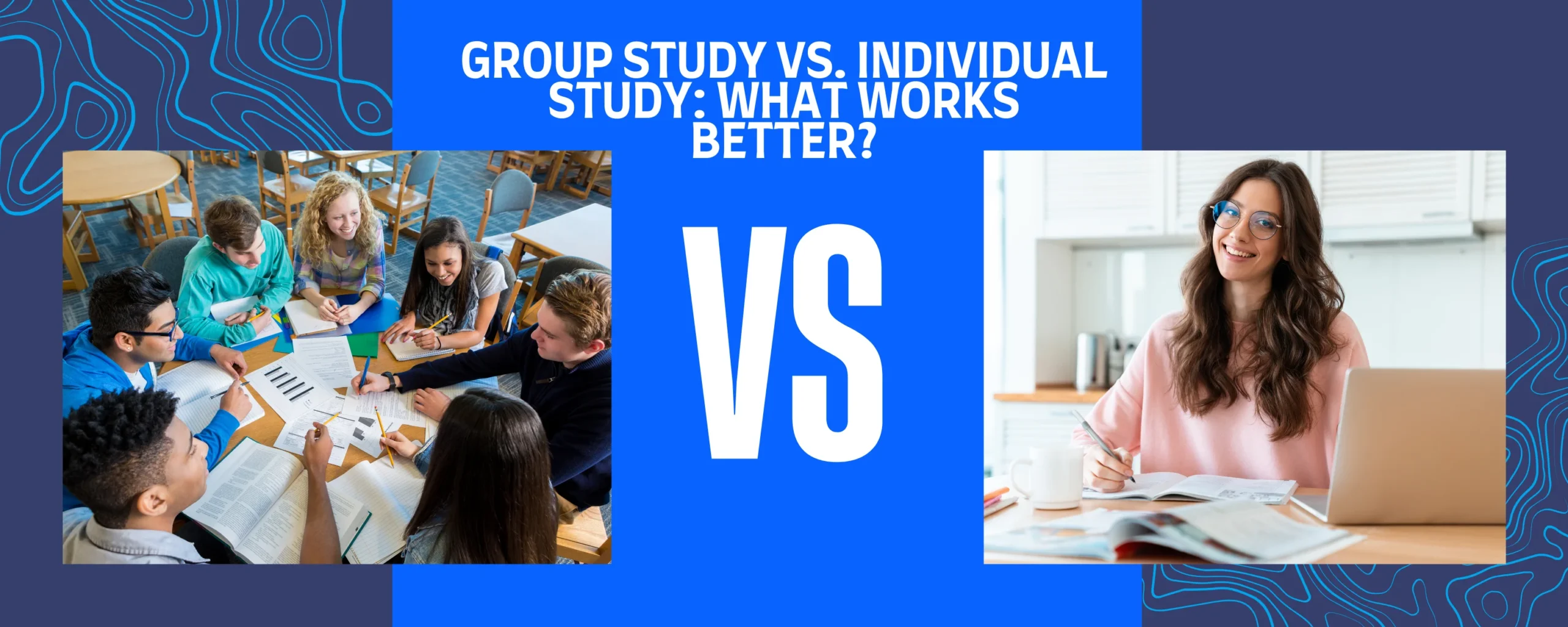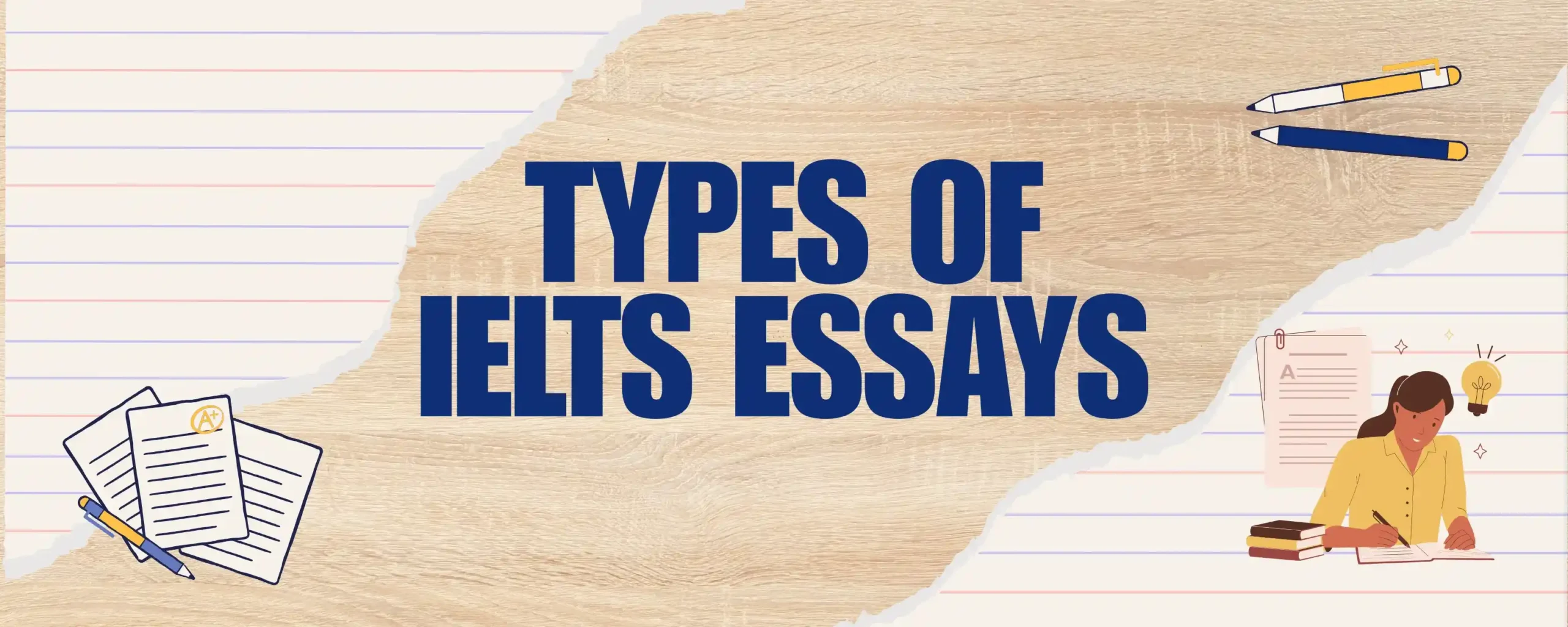Meet Solo Sam and Groupie Gia. Both are preparing for the IELTS exam, but their approaches are very different. Gia finds energy and encouragement in a group setting, while Sam prefers the flexibility and focus of studying alone. If you’re stuck between joining a study squad or going solo, you’re in the right place.
This blog will cover perspectives of Sam and Gia in depth, advantages, drawbacks, and ideal scenarios for group and solo study so that you can decide which suits your learning style the best. Because success in IELTS doesn’t just depend on what you study, it’s a lot about how you study.
What Is Group Study for IELTS?
Gia: “Okay, team player here! Let me tell you what group study really means.”
Group study for IELTS is all about preparing with your peers, friends, classmates, or even fellow test-takers you met online. It usually involves forming a study circle where everyone discusses topics, solves practice papers, gives each other feedback, and shares resources. You can meet in person at libraries, cafés, or coaching classes or go virtual with Zoom, Google Meet, or WhatsApp study groups.
It’s not just about reading together; it’s about learning from each other. Group settings encourage participation and allow learners to engage with different perspectives. It’s especially useful for practising the Speaking module, where interaction with others can simulate real test conditions. Group study also helps with consistency and accountability. When you know your team is waiting, skipping a session doesn’t feel so easy. It keeps the momentum going, especially when you’re feeling low or stuck.
In short, group study creates a collaborative learning environment that balances academic preparation with emotional support, making the process less isolating and more engaging.
Advantages of Group Study for IELTS
Gia: “You know what they say—’Alone we are fine, but together we can score Band 9!” Okay, maybe that’s just my version. But let me tell you how you can benefit from Group studies.
- Diverse Perspectives: Everyone in your group brings a different way of thinking. Discussing it with others exposes you to different viewpoints and strategies, enhancing your understanding.
- Peer Feedback: You don’t have to wait for a tutor to tell you what’s wrong. Group members often point out errors and offer suggestions and vice versa.
- Motivation Boost: Seeing others progress can inspire you to stay committed and work harder. Your group will help you overcome IELTS anxiety and stay on track.
- Speaking Practice: Mock Speaking sessions in a group can build confidence and reduce anxiety. It feels less like a test and more like a fun challenge.
- Resource Pooling: Students in a group tend to exchange useful materials like notes, links, and tips which makes your study easier.
- Reduced Stress: Studying with others can ease exam pressure and create a sense of community, which is mentally uplifting.
Gia: “It’s like a potluck dinner—everyone brings something useful to the table. And no one leaves hungry… for knowledge!”
What Is Individual Study for IELTS?
Sam: “While I get your point of whole group studies, I’m someone who likes no distractions or side chatter. I prefer studying all by myself.”
Individual study is like going on a solo journey. It means carving out your own IELTS success path at your pace. Only you decide which section to give more time and when to study. No need to sync with others. This way one can focus without being influenced or distracted by others’ progress.
Learners often rely on online resources, books, and recorded lessons. Individual study also supports customisation. You can adjust your pace, revisit challenging sections, or try different resources that align with your unique needs. It’s ideal for students who prefer self-guided learning and want full control over their prep schedule.
Advantages of Individual Study for IELTS
Sam: “Look, it’s not that I don’t like people. I just like progress more. And for me, solo study gets results.” There are many compelling reasons to study solo:
- Laser-Focused Attention: You can spend more time on your weak areas, where you need it.
- No Distractions: Forget chit-chat, snack breaks, or waiting for someone to catch up. It’s your pace, your path. Studying alone also helps maintain concentration.
- Tailored Strategies: You can use methods and resources that suit your learning style, whether it’s visual aids, audio guides, or written notes.
- Flexible Scheduling: You’re free to study when and how long you want, not when the group decides. Like if you got 30 min between tasks you can fit the prep in these moments.
- Stronger Self-Discipline: Individual study builds serious responsibility and self-management skills. No one’s watching, so you learn to be your own coach.
- Faster Progress: You don’t waste time explaining or discussing things with others. You can make efficient use of your time.
Sam: “It’s not about being alone. It’s about being aligned with your goals, your rhythm, and your time.”
Key Differences Between Group and Individual Study
Group study keeps you motivated, but what if you get distracted? Individual study offers full control, but what if you want someone’s help? The confusion still prevails. So here’s a quick breakdown of the key differences between Groupie Gia and Solo Sam’s perspective to help you decide.
| Feature | Sam (Individual Study) | Gia (Group Study) |
| Learning Pace | Fully self-paced – moves at your preferred speed | Set by group consensus – might be faster or slower |
| Flexibility | Study anytime, anywhere | Needs schedule coordination with others |
| Personalisation | 100% tailored to weak areas and goals | Generalised to suit group needs |
| Focus | Fewer distractions, deep concentration possible | More lively and sometimes off-track |
| Motivation Style | Self-driven, needs discipline | Driven by group energy and peer support |
| Feedback Source | Relies on self-assessment or expert tutor | Real-time peer feedback and discussion |
| Preparation Environment | Quiet, controlled, distraction-free | Dynamic, social, collaborative |
| Confidence Building | Builds independence and internal confidence | Builds communication and social confidence |
| Resources | Must find or create own materials | Shared resources and study hacks |
| Suitable For | Independent, introverted, self-motivated learners | Extroverts, team players, collaborative, discussion-loving learners |
Now, onto the big question… which method actually works best? Let’s hear it from both sides.
Which Method Works Best for IELTS?
Sam: “I prefer studying alone because it lets me focus deeply on my weak areas. I don’t waste time on things I already know, and I can schedule my day however I like. For someone like me, who loves planning and quiet focus, individual study is a no-brainer!”
Gia: “Group study is where the magic happens for me! I get to share doubts, listen to different ideas, and stay super motivated. I love the sense of community—it makes IELTS prep feel less stressful and more fun.”
Truth is, there’s no one-size-fits-all. Both methods can work wonders depending on your personality, goals and learning style. If you’re someone who enjoys sharing ideas, discussing problems, and working with peers, group study might be the better fit. On the other hand, if you value individuality, deep focus, and flexible routines, individual study can be more effective. A balanced approach also works for many students like studying alone for focus and joining groups for discussion.
The key is knowing your learning style and sticking to a method that keeps you consistent. So, who’s your ideal match? Sam or Gia?
Conclusion
Whether you’re a Gia who thrives in teamwork or a Sam who excels in solo missions, both methods are valid and effective. It’s not about which method is better. It’s about which one fits you better. What really matters is consistent practice, self-awareness, and reliable guidance.
And if you’re still unsure? Let La Forêt Education guide your journey. With expert mentors, customised plans, and flexible prep options, we help you discover your ideal IELTS path—whether it’s solo, social, or a mix of both. Because your success deserves the study method that works just for you.
Frequently Asked Questions
1. Is Individual Study Better Than Group Study for IELTS?
Ans: There’s no definitive answer to whether individual study is better than group study—it all depends on what works best for you. Individual study offers flexibility, privacy, and a personalised pace, making it ideal for students who prefer quiet environments and focused learning. It allows you to target your weak areas without distractions. However, group study brings its own strengths: collaboration, motivation, and diverse perspectives that can deepen your understanding. In reality, both methods have unique advantages, and the “better” option is the one that complements your learning style, discipline, and goals
2. Do You Prefer to Study Alone or in Groups for IELTS?
Ans: Your study preference plays a huge role in how effective your IELTS preparation turns out to be. If you enjoy structured independence, working alone might help you stay more focused and in control. On the other hand, if you feel energised by discussion and peer support, group study may keep you motivated and accountable. Think about how you absorb information best: through self-reflection or through interaction. Once you understand your comfort zone and strengths, choosing the right method becomes much easier—and far more rewarding.





